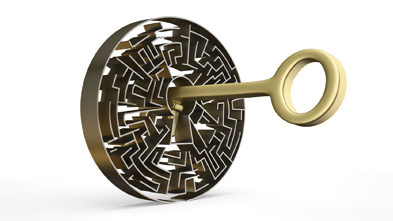
FAQs about psychogenic nonepileptic seizures (PNES)
What forms of treatment are available for psychogenic nonepileptic seizures (PNES)?
The first step towards recovery comes through the conversation that you, as a patient, have with your neurologist and mental health professional (usually a psychologist or psychiatrist) when you are first told that your diagnosis is PNES. It is incredibly important that this conversation include a thorough and clear explanation about PNES: what it is, what is known about its origins, how it fits with your history and how it can be treated. Ideally, you should not leave the hospital or clinic without a treatment referral or plan in hand.
Next, the most successful treatment interventions may be those conducted by a mental health professional that works in close collaboration with the diagnosing epilepsy center. In this way, the patient is treated by professionals who are familiar with the disorder, who can consult each other if there are questions and among whom there is an open and frequent communication about any new developments with the patient. When this is not logistically possible, efforts to keep your health care professionals in communication (especially neurologists and mental health professionals) are needed.
In the last ten years, a number of psychological interventions have been studied in patients with PNES and many of them are becoming gradually and broadly available. They are summarized here:
-Cognitive behavioral therapy (CBT) is the most widely studied form of psychotherapy for PNES. CBT is a type of therapy where patients learn and apply skills to change thoughts and behaviors that facilitate the development of PNES, therefore reducing their frequency.
-Mindfulness based psychotherapy (which usually include elements of dialectical-behavioral therapy, acceptance and commitment therapy, mindfulness-based stress reduction, mindfulness-based cognitive therapy or some combination of these) is also a type of therapy where patients learn and apply skills to relate effectively to internal experiences such as thoughts and feelings. By improving awareness of these relationships, there is improved control of behaviors and symptoms, including PNES.
-Interpersonal and psychodynamic psychotherapy (regarded as "talk therapy" by some) aims to help patients identify the underlying emotional conflicts thought to lead to PNES. By expressing these internal conflicts in a more effective way, PNES are less likely to occur.
-Prolonged exposure (PE) is a specific type of CBT for patients that suffer from both PNES and PTSD. PE helps patients emotionally process past traumatic experiences by confronting distressing memories and situations in a safe context.
-Family therapy is an adjunct to any of the above therapies, especially when working with children or adolescents presenting with PNES. An important component is therapy with the parent or caregiver, separate from the child, to address coping with symptoms, improving the child's functioning and identifying and managing contributing family stressors.
Regardless of the specific type of psychotherapy to treat PNES, there are common elements that should be included in any kind of treatment for PNES. These are:
- learning about the disorder,
- being proactive about making positive changes,
- maintaining as much independence and engagement in life as possible;
- taking care of one's own health (emphasizing a healthy diet, exercise, and sleep hygiene) and
- improving connection with others.
Most of the above treatments (CBT, mindfulness-based psychotherapy, PE) can be completed in a short-term basis (for example, 12 sessions), although some treatment modalities may be longer. Many patients require maintenance psychotherapy treatment or longer-term treatment after completion of the initial short-term phase of treatment.
Mental health professionals usually trained to deliver these kinds of treatments include psychiatrists, psychologists, clinical social workers, licensed mental health counselors. When selecting a mental health professional for treatment, you should discuss if she/he is familiar with the diagnosis and treatment approach.
Studies show that there is no effective medication to treat PNES. However, medications may be recommended to treat other disorders that frequently happen in patients with PNES.
Anti-epileptic drugs often may worsen PNES. Unless there is another indication for which an anti-epileptic drug is being prescribed, your doctor should work with you in discontinuing this kind of medication.
Cessation of PNES episodes or significant reduction in frequency has been reported in over half of cases using any of the above-mentioned techniques.
It is not always easy to find mental health professionals (psychiatrists and psychologists) who are comfortable with functional neurological disorders, so it may require some research. This link takes you to a referral list of mental health professionals in the United States and Canada who have an interest in or specialize in PNES (it does not include all states and provinces yet; it is a work in progress). http://nonepilepticseizures.com/epilepsy-psychogenic-NES-information-referral-sites.php